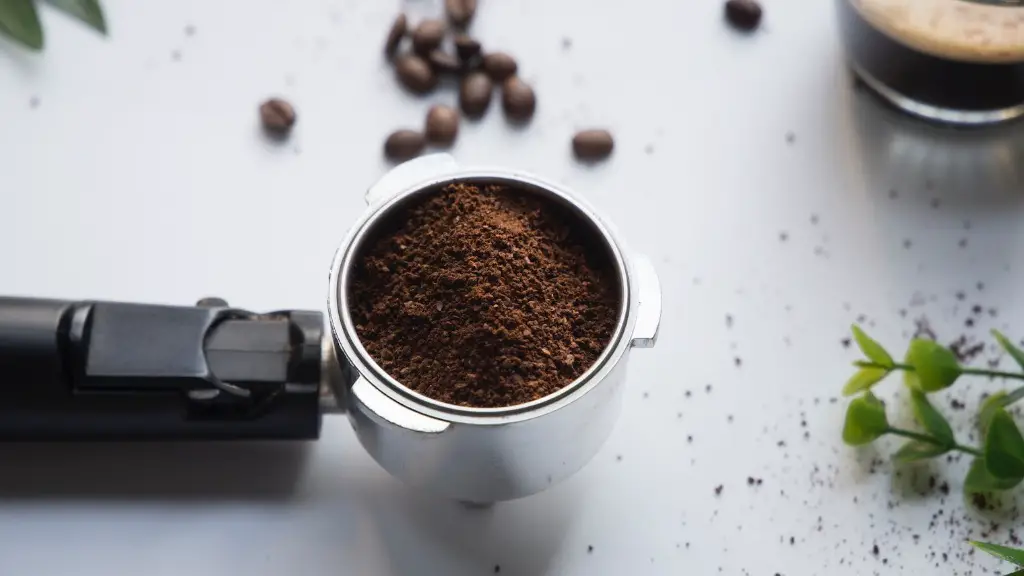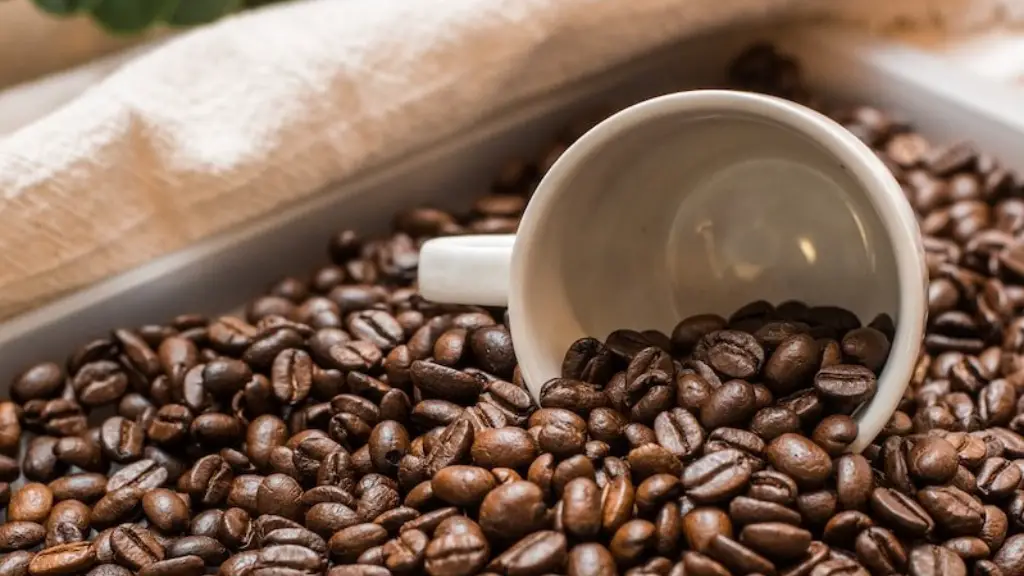Coffee beans are the fruit of the coffee plant, and they are typically quite acidic. The acidity level of coffee beans can vary depending on the type of coffee plant they come from, as well as how the beans are roasted. However, most coffee beans have an acidity level that falls somewhere between pH 4.85 and 5.10.
All coffee beans are slightly acidic, but the exact level of acidity depends on the type of bean and where it was grown. Robusta beans, for example, are typically more acidic than Arabica beans.
Which coffee beans are least acidic?
There are a few different types of coffee that are low in acidity. Dark roasts tend to be less acidic because they contain fewer compounds that cause stomach cells to produce acid. Espresso beans and cold brew coffee are also low in acidity. Some brands of coffee, like mushroom or chicory blends, are specifically designed to be low in acidity.
Light roast coffee beans are more acidic than dark roast coffee beans. This is because the light roast beans are roasted for a shorter amount of time, leaving more of the acid intact. The acidity in light roast coffee beans can give the coffee a bright or citrusy flavor.
Is black coffee more acidic
The roasting process of coffee beans is very important in determining the final qualities of the coffee, like colour, flavour, and acidic content. The darker the roast, the less acid the beans retain, therefore lighter roasts contain more acid and darker roasts contain less acid. This is why it’s important to choose the right roast for your coffee, depending on your preferences.
If you’re susceptible to reflux, coffee may be one of your triggers. This is because coffee is high in caffeine and also has a natural acidity. Sometimes, both of these factors can cause your reflux. If you find that coffee is triggering your reflux, you may want to try switching to a decaf variety or limiting your intake.
Is there a coffee that is not acidic?
If you’re looking for a great-tasting, organic coffee that is easy on your stomach, Tyler’s No Acid Organic Ground Coffee is a great option. This coffee is made with 100% Arabica beans and has a neutral pH, so it won’t cause acid reflux or other digestive issues. It’s also gentle on your teeth, thanks to its lack of acidity. And, best of all, it has a full, rich flavor with no bitter aftertaste.
dark roasted coffee is easier on the stomach than light and mild roasts because it produces an ingredient that prevents hydrochloric acid from building up in the stomach. This is good news for people who suffer from coffee sensitivity.
What is the least acidic way to drink coffee?
If you’re looking for a low-acid cup of coffee, cold brew is the way to go. The brewing process significantly reduces the volume of organic compounds like caffeine and acids, compared to hot-water brewing. So if you’re looking for a smooth, less acidic cup of coffee, cold brew is the way to go.
Good quality Colombian coffee is more acidic in general. This is because of the growing conditions: high altitudes and lower temperatures. These conditions result in a coffee that is more flavorful and acidic.
Is a dark roast coffee less acidic
The study found that dark roast coffee is easier on the stomach than light roasts because it produces an ingredient that prevents hydrochloric acid from building up in the stomach. The cold brew method has been shown to increase the pH level of coffee.
If you’re worried about coffee acidity, keep in mind that Starbucks (and other coffee places) roast their beans before they brew them. This process goes a long way toward slashing acid levels in brewed coffee. Compared to some other coffee shops, Starbucks coffee is already lower in acid.
What coffee brand is least acidic?
There are a few different ways to reduce the acidity in coffee, including using a low acid coffee blend, brewing coffee with filtered water, or using a coffee maker with a built in water filter. Volcanica Coffee has a few different low acid coffee blends, including their Low-Acid Coffee Blend, Caffe Vita Organic Sumatra Gayo River, and Komodo Dragon Coffee.Hawaiian Kona coffee is also naturally lower in acidity due to the volcanic soil it’s grown in. For coffee drinkers who still want their caffeine fix, Mommee Coffee Half Caff Organic Coffee is a great option as it’s half decaf and half regular coffee.
Although decaffeinated coffee might be slightly less acidic than caffeinated coffee, the difference is not significant. The pH of coffee varies depending on the type of bean and the decaffeination process, but is generally around 5.
Should I stop drinking coffee if I have acid reflux
If you suffer from gastroesophageal reflux disease, you may want to avoid drinking caffeine. Caffeine can trigger heartburn, as well as respiratory and digestive symptoms. Talk to your doctor to see if caffeine is a trigger for your symptoms.
If you are noticing that your coffee is making your stomach hurt, it may be due to the size of the coffee grounds you are using. Coarser grounds tend to produce coffee that is less acidic, and thus, gentler on the stomach. Try switching to a different grind size and see if that makes a difference.
Does coffee cause inflammation?
While coffee does have some anti-inflammatory properties, it may not have the same effect on everyone. Some evidence suggests that it may actually increase inflammation in some people. This can depend on the concentration of caffeine, how your body reacts to it, your genetics, and your age. If you are concerned about inflammation, it’s best to talk to your doctor to see if coffee is right for you.
If you’re looking for a dark roast coffee that won’t irritate your stomach, Folgers Black Silk is a good option. Arabica beans are known for being lower in acidity, making them easier on the digestive system. Plus, the K-Cup format means you can enjoy a fresh cup of coffee without any hassle.
Warp Up
The answer to this question is a bit more complicated than a simple yes or no. Coffee beans are not naturally acidic, but the process of roasting them can create some acidity. Additionally, the way that coffee is brewed can also affect its acidity levels. So, while coffee beans themselves are not intrinsically acidic, the finished product can be.
The coffee bean is not an acidic fruit. The acidity of coffee has more to do with the brewing process and the type of water used.





